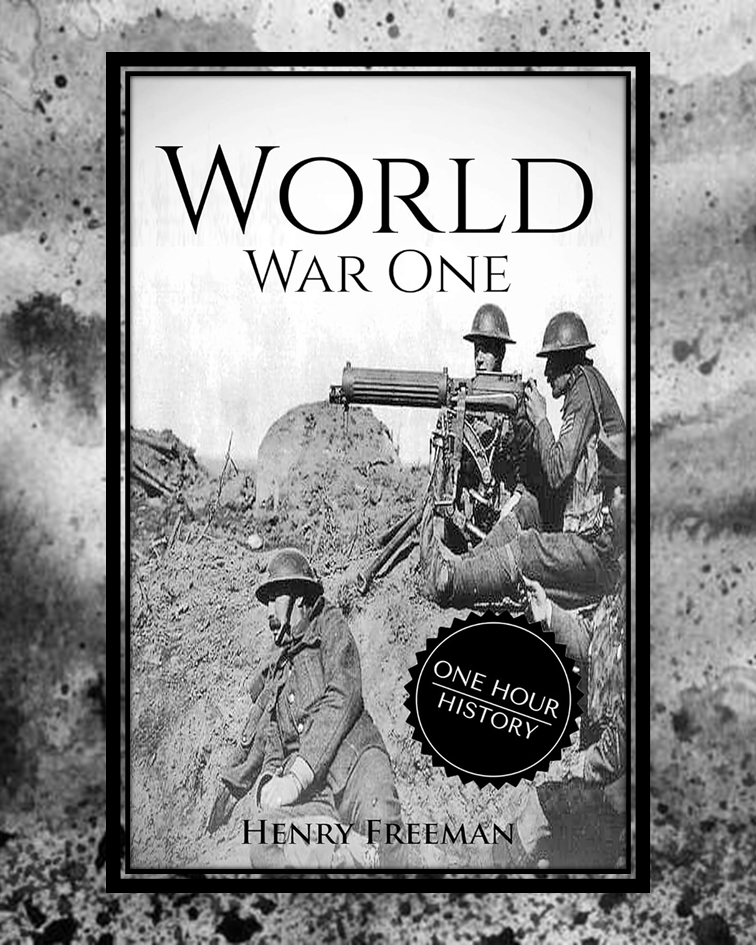Sameer Gudhate Presents the Book Review of World War 1: A History From Beginning to End by Henry Freeman
- Sameer Gudhate
- Sep 29, 2025
- 3 min read

There are books that feel like thick tomes, demanding months of your time, and then there are the slender ones — the kind you slip into your bag, read in a single sitting, yet carry with you long after you’ve turned the last page. World War 1: A History From Beginning to End by Henry Freeman belongs to the latter. I opened it one rainy afternoon, thinking I’d skim a few chapters, and before I knew it, dusk had settled, the chai had gone cold, and I had marched through four years of the Great War in just over an hour.
Freeman is not your typical academic historian perched high in an ivory tower. He’s an archaeologist, a wanderer, a man who has walked through ruins and touched the bones of history. That background bleeds into his writing — there’s a tactile immediacy, a sense that he’s brushing off the dust of the past and handing it to you in the palm of his hand. Unlike many bloated history tomes, his aim here is clear: clarity over complexity, essence over encyclopedic detail. And it works.
The book takes you by the hand and walks you briskly through the muddy trenches of Europe, the smoke-choked skies where airplanes first buzzed like mechanical wasps, and the political salons where monarchs and ministers gambled with human lives like poker chips. It doesn’t drown you in footnotes or jargon. Instead, it unfolds like a fast-moving timeline, yet one that still pauses to let you feel the chill of poison gas creeping over a trench or the exhaustion of men clawing through endless mud at Verdun.
Freeman’s prose is direct, unfussy, but not lifeless. There’s a rhythm to the pacing — bursts of action, then a quieter reflection — much like the war itself with its long stalemates punctuated by sudden offensives. His ability to condense so much into so little space is both the book’s magic and its limitation. At times, I wanted him to linger longer, to dig deeper into the lives of the soldiers or the political dominoes that tumbled so disastrously. But perhaps that hunger is the point: this is not the feast but the appetizer, meant to awaken your appetite for more.
What struck me most were the personal moments tucked into the broader sweep. The assassination of Archduke Franz Ferdinand feels less like a dusty date and more like the spark of a bonfire. The young Gavrilo Princip pulling the trigger is painted not just as an assassin, but as a boy with dreams, anger, and misplaced conviction. And when Freeman describes entire divisions of men evaporating in pursuit of a few barren miles, it’s impossible not to pause, not to feel the futility echo in today’s headlines about conflicts that still trade young lives for meaningless ground.
Reading this book, I found myself thinking about speed. World War I was the first industrialized war — the machine gun spitting death faster than anyone had imagined, tanks grinding forward like monsters from the earth, poison gas seeping silently across no man’s land. In the same way, Freeman delivers history at speed: quick, efficient, but potent enough to sting. And just like the war left scars that reshaped the century, his brisk account leaves imprints that will stay with you.
Of course, there are gaps. If you’re looking for detailed analysis of lesser-known campaigns, nuanced portraits of leaders, or the deep economic ripples of the war, this book will skim past them. But as a doorway — as a compact introduction that captures both the enormity and the intimacy of World War I — it succeeds brilliantly.
For me, the book was like stepping into a time machine that didn’t overwhelm with dials and machinery but simply said: here, look, this is how the world broke and tried to piece itself back together. And as I closed the Kindle, I thought of the phrase often used about World War I: “the war to end all wars.” How bitterly ironic that sounds today, in a century that still hasn’t learned.
If you want to walk the haunted fields of the Great War without lugging a thousand-page brick, Henry Freeman is a trustworthy guide. This book may be short, but it reverberates like the echo of artillery across time. Read it not just to learn about history, but to feel its pulse — and perhaps to listen more carefully to the lessons it still whispers to us.
Pick it up. Let it remind you how fragile peace is, and how quickly the world can tumble into fire.
#WorldWar1 #TheGreatWar #HistoryBooks #BookReview #HenryFreeman #MilitaryHistory #WarHistory #FirstWorldWar #HistoricalBooks #HistoryLovers #HistoryBuff #WorldHistory #TrenchWarfare #HistoryNerd #HistoryReads #ReadersOfInstagram #BookstagramIndia #KindleReads #NonfictionBooks #HistoryMatters #BooksOnHistory #WW1History #BookRecommendations #BookishLove #QuickReads #BookDiscussion #LearnHistory #ReadingCommunity #MustReadBooks #BookReviewIndia #sameergudhate #thebookreviewman




Comments